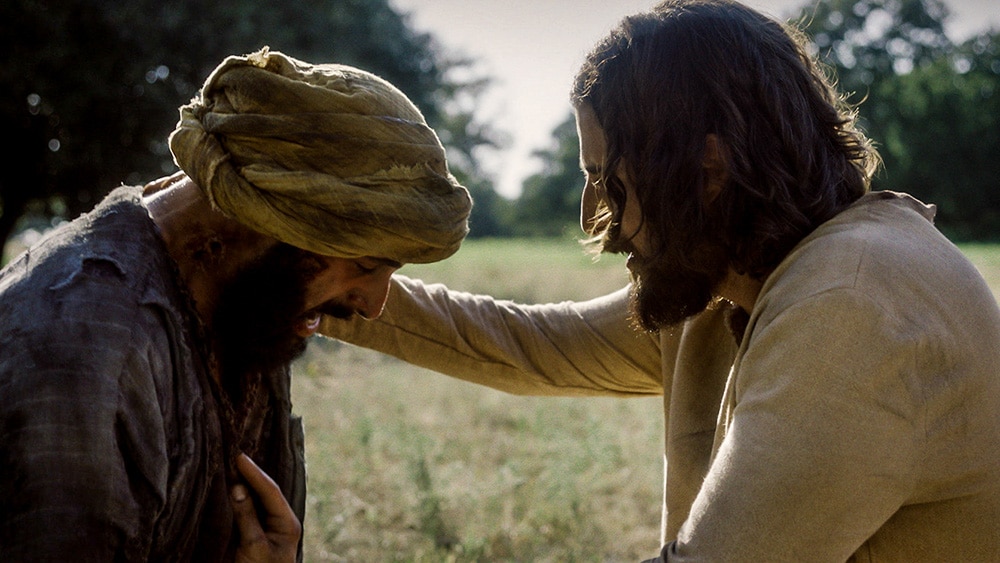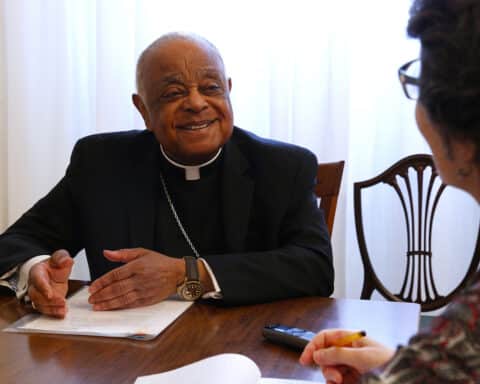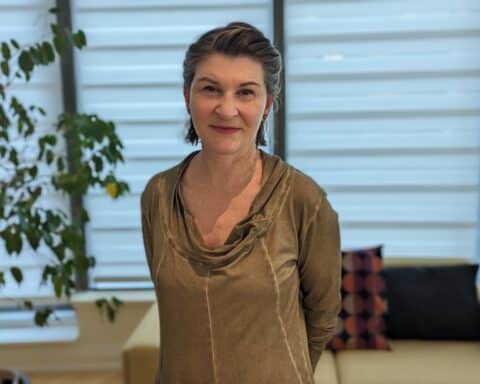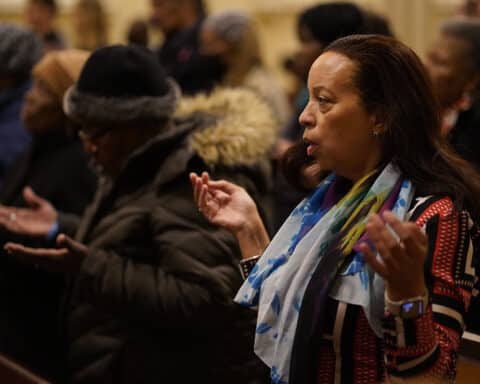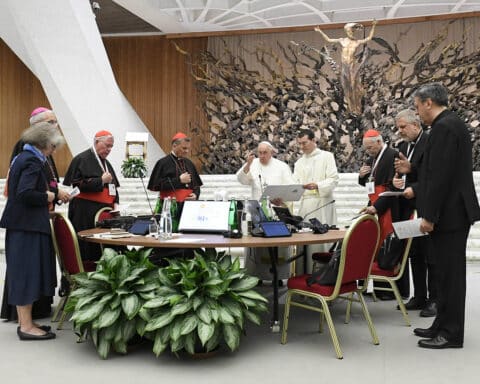On the weeks that I go to visit my parents on my day off, we have been watching “The Chosen” together. I have really enjoyed seeing the fictionalized backstories of many of the apostles and other early followers of Christ. Christ tells his followers to “get used to different.” He works constantly to challenge his followers.
Simon the Zealot gives up his weapon; Simon the son of Jonah has to learn to welcome and forgive Matthew; many of them have to welcome and forgive Mary of Magdala when she sins; and reconciliation works in the family of Matthew, as well. In the light of Christ’s teachings, they all experience a metanoia, a conversion.
Transformation in Christ
As Pope Benedict XVI wrote in Spe Salvi, “Before [Jesus’] gaze all falsehood melts away. This encounter with him, as it burns us, transforms us and frees us, allowing us to become truly ourselves. … His gaze, the touch of his heart heals us through an undeniably painful transformation ‘as through fire.’ But it is a blessed pain, in which the holy power of his love sears through us life a flame, enabling us to become totally ourselves and thus totally of God.”
In the case of Simon, son of Jonah, this conversion is so radical he receives a new name to signify his identity in Christ. He becomes Peter. Throughout Christian history, men and women who enter religious life receive a new identity in Christ. Saints have had radical transformations to become the people they were meant to be only in the light of Christ. Ignatius of Loyola went from being a worldly soldier to a soldier for Christ. Charles de Foucauld went from being a luxuriously spendthrift to a humble desert hermit, Charles of Jesus. We never know what Christ’s gaze and power will transform a person to be, what it will look like when someone comes to maturity in Christ (cf. Eph 4:1-16).
Inclusivity and identity
In recent years, and in particular in light of the Synod of Bishops on synodality, there has been much conversation on inclusivity. Clearly, that word has popped up in the hearts and minds of many who have suggested it, so we must not be quick to reject it. I think of people I have heard tell me that because they identify a certain way, they feel the Church “hates” them.
When I hear this, I am deeply saddened, because the people I have in mind are baptized, meaning they are part of the Church. The Church has never said that they are hated. In fact, the Church with arms open wide and the love of the heart of Christ says, “Come to me, all who are weary.” Of course, the Evil One sows confusion, and in his role as the Father of Lies whispers to people that because of our sins (whatever they are) we are permanently alienated from God and the community.
Accompaniment and discipleship
As disciples of Jesus Christ, we have an obligation to help people discern that the voice saying that they are hated or not welcome is not that of the Church nor that of God. Here, the immense wisdom of our Holy Father Pope Francis in his repeated calls for personal pastoral accompaniment is manifest. When he speaks about a journey of accompanying people, he knows that the journey must go somewhere. He told the U.S. bishops that they must not fear dialogue in accompaniment, “Harsh and divisive language does not befit the tongue of a pastor, it has no place in his heart; although it may momentarily seem to win the day, only the enduring allure of goodness and love remains truly convincing.” Someone can exhort and “prove” what the Bible says about this or that moral question until they are blue in the face, but so very often, the person living non-biblically is not experiencing a question of the mind but of the heart.
Healing, saving
As a priest, I know from experience that many people who struggle with sin (and I do not just mean sexual sin) come to confession with deep shame. They also have often given up the hope that they can live some other way, that Christ desires to work in them to heal them, that they are not defined by their sins but by their identity as beloved sons or daughters of our Heavenly Father, and that it is in this identity, this gaze, that we discover who we truly are.
The words heal and save are intimately linked in the biblical text. When Jesus says that his disciples will abide in his words, he adds that doing so will lead to knowledge of the truth and that “the truth will set you free” (Jn 8:32). So very often, the voice of the world suggests that what God offers in the moral life is not freedom and healing but repression. The truth is, sin always wounds us and others.
The Church must strive to help those who feel excluded or marginalized hear that voice of welcome. To fail to offer the fullness of hope and healing and redemption that Christ wants for all of us because we are afraid that the fullness of the truth might be rejected as out of date is to fail to love with the heart of Christ.
God’s commands are not burdensome (Mt 11:30), they are a delight (Ps 1). In our good and holy desire to be welcoming, we cannot forget to share the Good News of the Gospel that God’s grace can truly transform us. That his power is real and that he desires to save us and heal us, making us a new creation in him, and giving us our true identity of who we are called to be.
Father Donato Infante is the vocation director of the Diocese of Worcester, Massachusetts.

